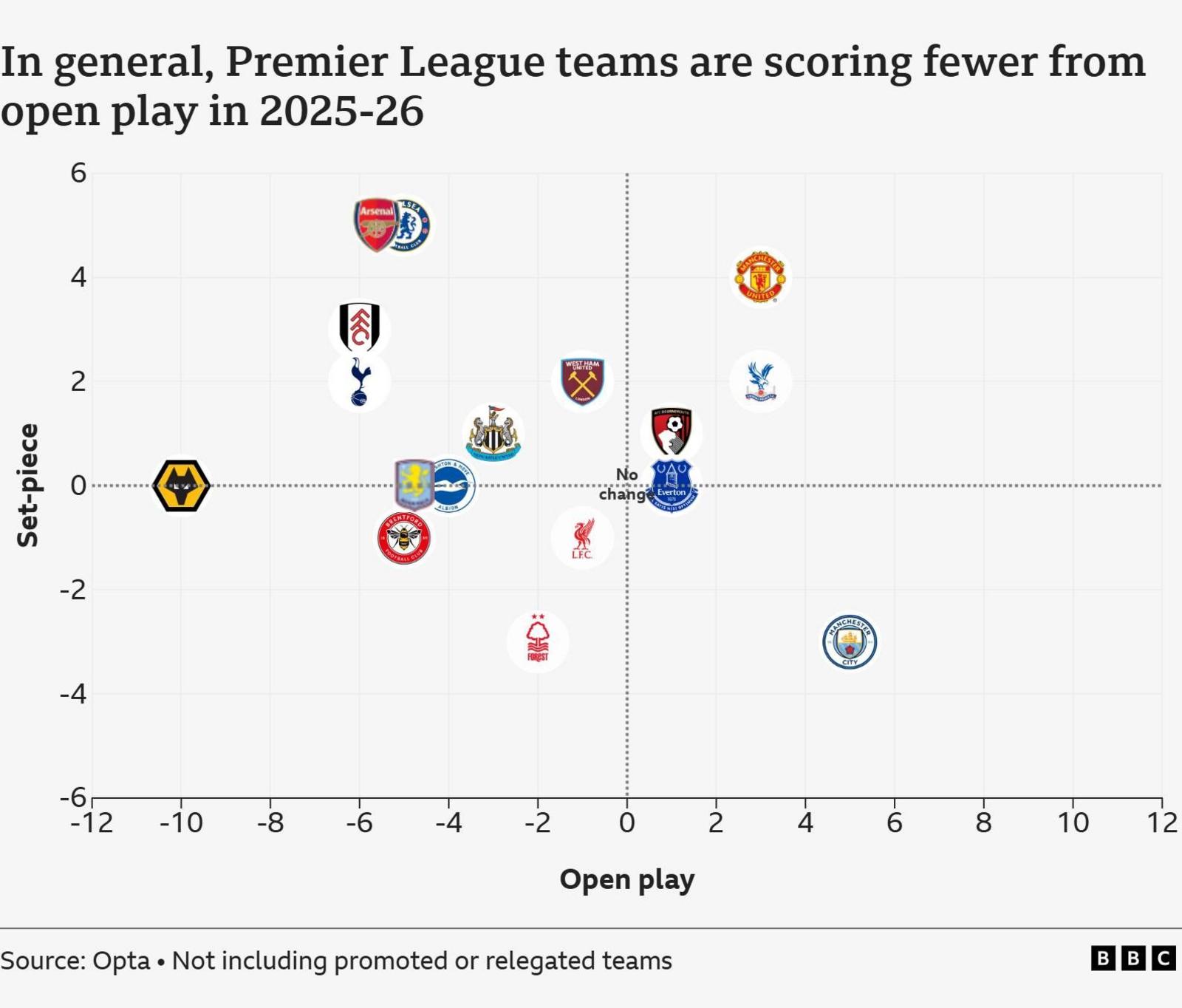Are goals from open play on the decline?
- Published
One of the biggest stories of the Premier League season so far is the decline of goals scored in open play and how teams have been scoring more from set-pieces instead.
When we compare how goals have been scored to the first 11 games last season, there have been 39 fewer scored in open play and 26 more from team set-pieces and penalties, giving us 13 fewer overall.
If we look at the bigger picture and the number of shots teams are taking, there have been an incredible 370 fewer in open play than at this stage last time out.
So which teams are most responsible for this change in how goals are scored this season?

The above graph compares how teams have gone up or down in numbers of set-piece and goals from open play compared with the same stage last season.
In terms of goals scored from open play, Wolves have seen by far the biggest decline, scoring just four in 11 games and that is 10 fewer than at this stage last season.
Outside of Wolves, the Premier League's decline in open play goals is very much a London thing, with five of the capital's seven sides scoring at least five goals fewer from open play than last season.
In fairness, that is largely down to them scoring lots of goals at the start of last season rather than them really struggling to score in open play this campaign.
Meanwhile Manchester City have seen the biggest increase, with all but one of their 23 goals scored this season coming in open play.
When it comes to goals scored from set-pieces (excluding penalties), Arsenal and Chelsea have seen the biggest increase, with both sides replacing the five fewer goals that they have scored in open play with the same number from dead-ball situation.
Manchester United have scored twice as many goals from set-pieces as they did in the 11 games before Ruben Amorim took charge last season.
On the flipside, Manchester City do not seem to have got the memo about scoring more from set-pieces because they've scored three fewer than last season, as have Nottingham Forest, although that might be down to the change in style they have tried to implement.